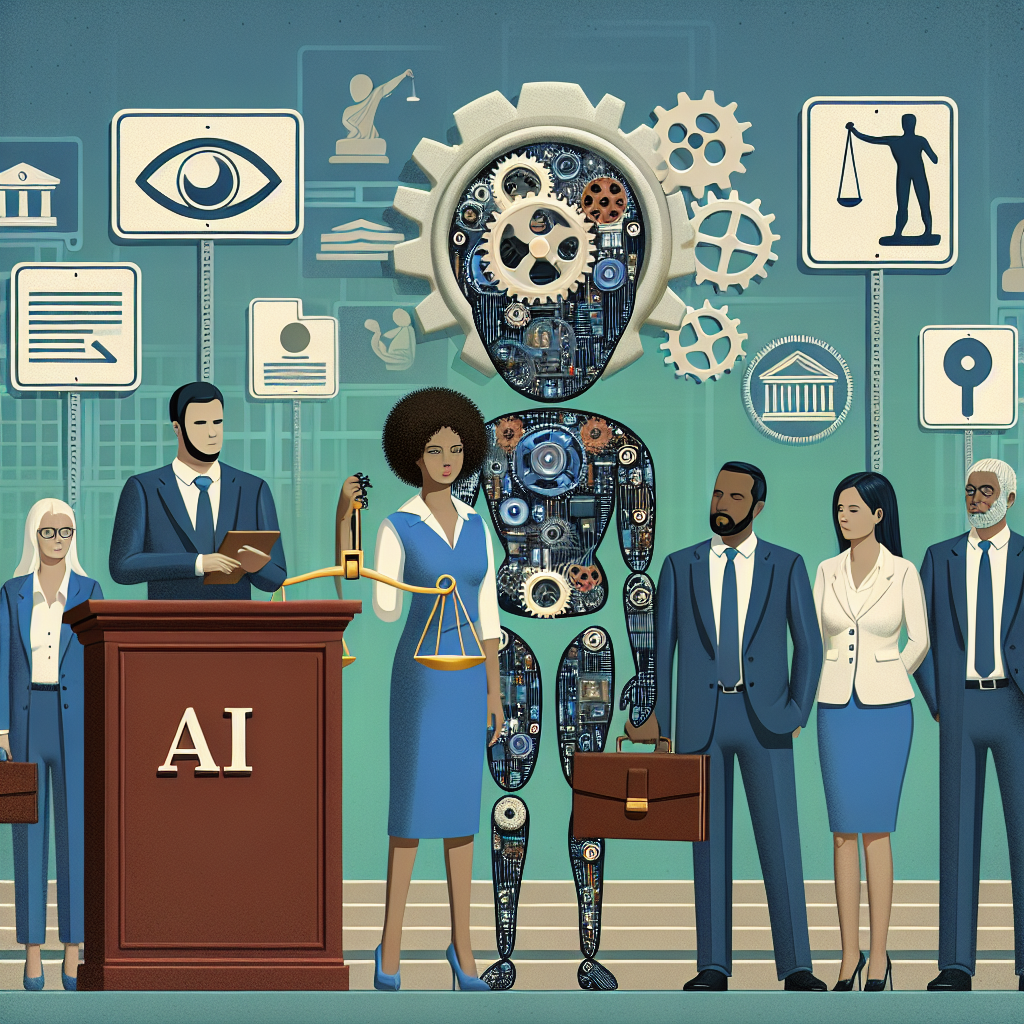In recent years, artificial intelligence (AI) has been playing an increasingly important role in improving access to justice for underserved communities. From helping individuals navigate the legal system to providing more efficient and affordable legal services, AI is revolutionizing the way people access and receive justice. This article will explore the various ways in which AI is making a positive impact on access to justice for underserved communities and address some frequently asked questions about this emerging technology.
One of the primary ways in which AI is improving access to justice for underserved communities is by providing legal information and guidance to individuals who may not have access to traditional legal services. Many underserved communities, such as low-income individuals, immigrants, and people living in rural areas, face barriers to accessing legal assistance due to factors such as cost, distance, and language barriers. AI-powered tools, such as chatbots and virtual assistants, can provide these individuals with information about their legal rights, options, and resources in a more accessible and user-friendly way.
For example, organizations like Legal Aid Ontario have implemented AI-powered chatbots on their websites to help individuals find answers to common legal questions and connect them with relevant resources. These chatbots use natural language processing and machine learning algorithms to understand users’ inquiries and provide accurate and relevant information in real-time. This technology has proven to be particularly helpful for individuals who may be hesitant to seek legal assistance from a human lawyer or who may not have the resources to do so.
AI is also being used to streamline and automate various legal processes, making them more efficient and cost-effective for underserved communities. For example, AI-powered document review and analysis tools can help lawyers and legal aid organizations review large volumes of legal documents more quickly and accurately than traditional manual methods. This not only saves time and resources but also allows legal professionals to focus on more complex and high-value tasks, such as advising clients and representing them in court.
Additionally, AI is enabling the development of new and innovative legal services that are more accessible and affordable for underserved communities. For example, online dispute resolution platforms, which use AI algorithms to help parties resolve legal disputes without going to court, are becoming increasingly popular as an alternative to traditional litigation. These platforms can help individuals resolve their legal issues more quickly and at a fraction of the cost of hiring a lawyer or going to court, making justice more accessible to those who may not have the means to pursue traditional legal avenues.
Furthermore, AI is helping to address the issue of legal aid shortages in underserved communities by providing virtual legal assistance and support. For example, organizations like Pro Bono Net have developed AI-powered platforms that connect individuals in need of legal assistance with volunteer lawyers who can provide pro bono services remotely. These platforms use AI algorithms to match clients with lawyers based on their legal needs, expertise, and availability, making it easier for underserved communities to access free or low-cost legal assistance.
Despite the many benefits that AI brings to improving access to justice for underserved communities, there are also some challenges and concerns that need to be addressed. For example, there are concerns about the potential bias and discrimination in AI algorithms, which could affect the quality and fairness of legal outcomes for underserved communities. Additionally, there are ethical considerations around the use of AI in the legal system, such as privacy and data security issues, that need to be carefully managed to protect the rights and interests of individuals accessing legal services.
In conclusion, AI is playing a transformative role in improving access to justice for underserved communities by providing legal information, automating legal processes, and creating new and innovative legal services. By harnessing the power of AI, we can make the legal system more accessible, efficient, and equitable for all individuals, regardless of their background or circumstances. As AI continues to evolve and advance, it is important for legal professionals, policymakers, and advocates to work together to ensure that AI is used responsibly and ethically to promote justice and equality for all.
FAQs:
Q: How does AI help underserved communities access legal information?
A: AI-powered tools, such as chatbots and virtual assistants, can provide individuals with legal information about their rights, options, and resources in a more accessible and user-friendly way.
Q: How does AI streamline legal processes for underserved communities?
A: AI-powered document review and analysis tools can help lawyers and legal aid organizations review large volumes of legal documents more quickly and accurately than traditional manual methods, saving time and resources.
Q: What are some examples of AI-powered legal services for underserved communities?
A: Online dispute resolution platforms, virtual legal assistance platforms, and AI-powered chatbots are examples of innovative legal services that are more accessible and affordable for underserved communities.
Q: What are some concerns about using AI in the legal system?
A: Concerns include potential bias and discrimination in AI algorithms, as well as ethical considerations around privacy and data security that need to be carefully managed to protect the rights and interests of individuals accessing legal services.
Q: How can AI be used responsibly and ethically to improve access to justice for underserved communities?
A: By collaborating with legal professionals, policymakers, and advocates, AI can be used in a way that promotes justice and equality for all individuals, regardless of their background or circumstances.

